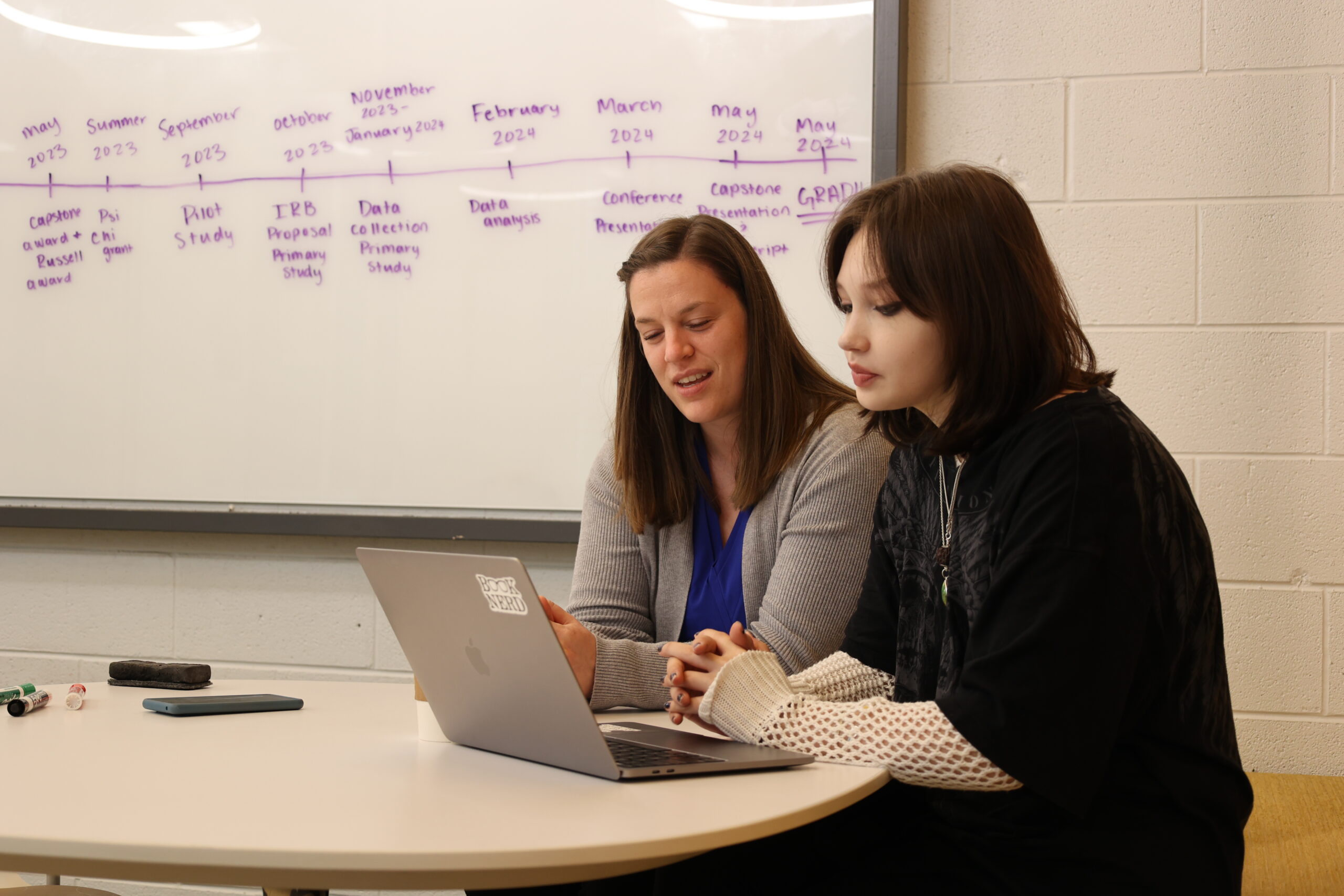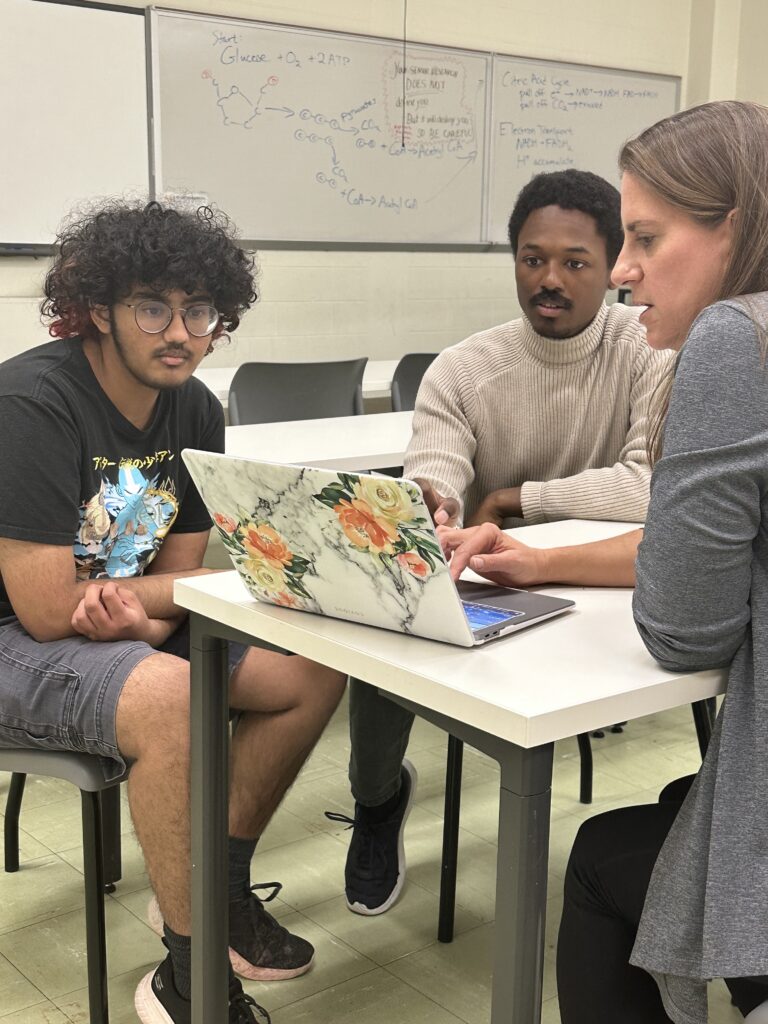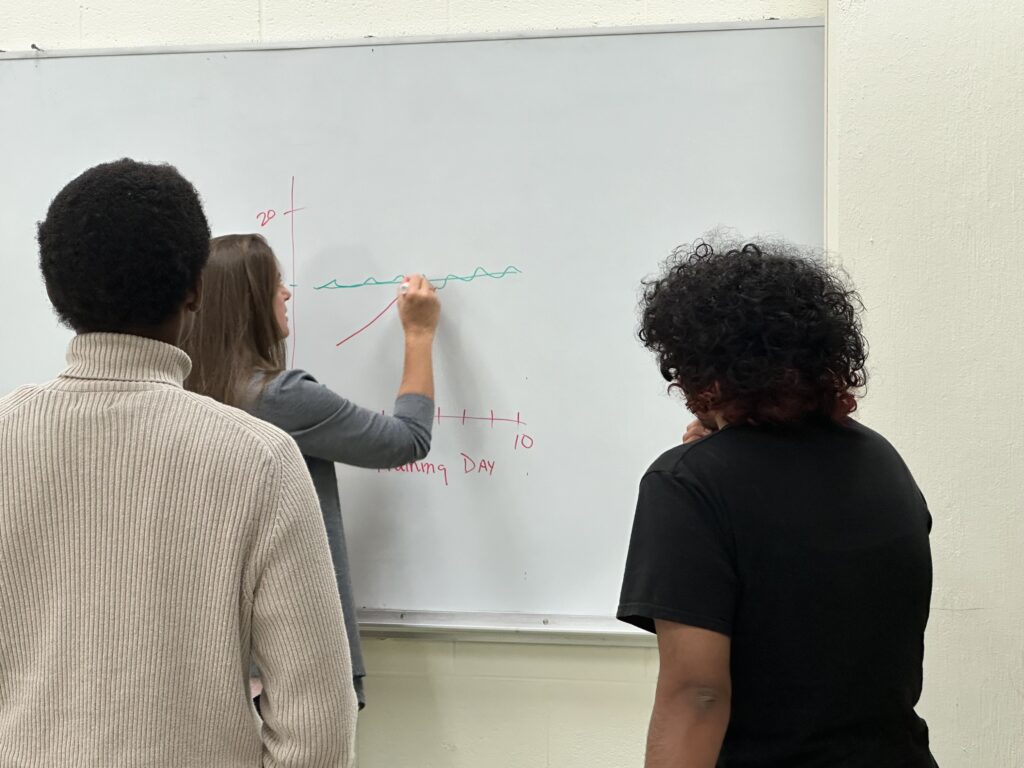Thanks to two recent grants, MBU students get a unique opportunity to experience the research process and develop skills they can apply to the rest of their college career, and beyond.

Assistant Professor of Psychology Robin Hopkins and psychology major Annabella Gonzales ’24 received a research grant for the proposal, “Improving Juror Sensitivity to Eyewitness Evidence: Timing of Instructions.”
Scientific research is as much about the journey as it is the destination. It’s a rigorous process: researchers develop a hypothesis, design and perform experiments, and then make sense of the results.
This past summer, both Associate Professor of Biology Rebecca Haberman and Assistant Professor of Psychology Robin Hopkins received grants that give MBU students a unique opportunity to experience the research process and develop skills they can apply to the rest of their college career, and beyond.
“The entire research process is what students are learning, not just the particular problem that we’re studying,” Haberman said.
“Students that have that opportunity to see this process from beginning to end develop lots of different skills — problem-solving skills, observational skills, teamwork.”
Hopkins’ grant of $1,500 was awarded by Psi Chi, the international honor society in psychology, for the proposal, “Improving Juror Sensitivity to Eyewitness Evidence: Timing of Instructions.”
“This has been a unique opportunity for me where someone started before their senior year, and had a really solid idea and had a really solid research literacy foundation to where she could move forward at a very early phase of college,” Hopkins said.
The student who helped develop the proposal for the grant is senior psychology major Annabella Gonzales ’24, who began the project in her junior year.
“My interest in psychology started in high school,” Gonazales said. “I did literature reviews, conducted studies, and just fell in love with researching.”
When Gonzales came to MBU, she wasn’t entirely sure she wanted to major in psychology, but then she took a forensic psychology course with Hopkins and a light bulb went off.
“I’ve always been interested in the criminal justice system,” Gonazales said, “but I don’t really like the career paths that criminal justice majors tend to go to — I’m more concerned about changing certain aspects of the legal system.
“So I went up to Dr. Hopkins after class and I was like, this is what I want to do, this is my path — and we started to develop the project from there.”
The proposal that won the grant is both Gonzales’ senior thesis and her honors thesis, because it satisfies the requirements for both her senior capstone and her Baldwin Honors Scholars thesis.
After she graduates this year, Gonzales will continue to pursue her passion for research.
“I’m applying to graduate school,” Gonzales said. “I want to become a professor, and then continue doing research as a professor.”


Associate Professor of Biology Rebecca Haberman received a grant from the Virginia Alzheimer’s and Related Diseases Research Award Fund to examine the cellular underpinnings of healthy brain aging. Biology majors Cooper Tolbertsmith ’24 and Siri Ugru ’24 are two of eight MBU students working in her lab.
Haberman’s grant of $35,000 was awarded by the Virginia Alzheimer’s and Related Diseases Research Award Fund. Haberman, whose research expertise is in the area of memory and aging, has eight MBU students working in her lab.
The grant research will examine the cellular underpinnings of healthy brain aging, so that scientists and physicians can better construct therapies that treat or prevent disease. Specifically, it will investigate how memory activates areas of the brain that are vulnerable to neurodegeneration in Alzheimer’s disease.
“We’ve trained rats on a behavioral task, and then we’re looking at which neurons are active in which parts of their brain,” Haberman said. “We’re specifically looking at parts that are involved in the earliest memory neurodegenerative conditions in Alzheimer’s disease.”
Two of the students working with Haberman are senior biology majors Cooper Tolbertsmith ’24 and Siri Ugru ’24. Unlike Annabella Gonzales, this grant gives them their first taste of the rigors of the scientific method.
“This is my first experience with an actual research project, and I really like that we get to be a part of every aspect,” Ugru said. “But it’s a bit challenging to wrap my head around the concept sometimes simply because I’m not focused on neuroscience.”
“It is hard,” Haberman said. “The research we’re doing is not simple research, but we’re giving them an opportunity to try it — and they’re doing really well with it.”
After he graduates, Ugru wants to pursue his doctorate for a career in disease research — specifically cancer.
“I think it’s really interesting the way that we keep making progress in the research as well in the treatment,” Ugru said. “What we know about cancer from 50 years ago is nothing compared to what we know now, and I want to be part of the new advancements.”
This study is also the first foray into this level of research for Tolbertsmith, who plans to go to medical school after graduating from MBU to become a neurosurgeon.
“The thing I enjoy most about it is the amount that I get to learn,” Tolbertsmith said. “From the different processes that you have to use, as well as the information that you need in order to inform your project — there’s a lot of really cool and interesting stuff that you get to explore.”